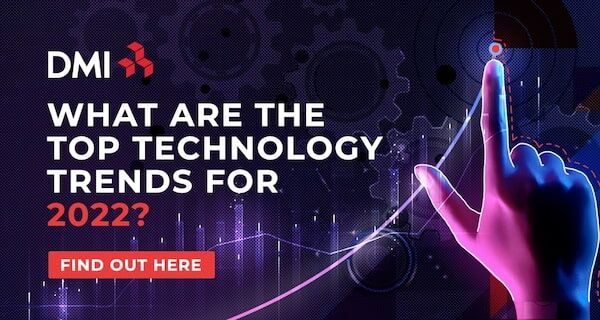Patient Experience and Technology: How DMI Can Help
Patient experience is critical to overall success in healthcare. Positive experiences can lead to an increased likelihood of better clinical outcomes, and patient satisfaction is an important metric considered by insurance partners and regulatory compliance organizations. Yet patient-centered care is still something many healthcare providers are chasing, as indicated by one survey where 60% of respondents said they had a bad patient experience within the 3 months prior to the survey.
Technology can help drive important metrics such as patient safety and positive health outcomes, increasing overall patient experience. Discover more about technology’s role in positive patient experiences below, including how DMI can help.
Understanding Patient Experience
Patient experience refers to all the interactions a patient has with a healthcare organization. It starts before the patient arrives for treatment — as soon as the patient reaches out to a healthcare system, they begin to have a relationship with that system. Appointment scheduling protocols, intake processes, clinical treatment, and discharge procedures all play a role in patient engagement and experience.
Healthcare organizations face a number of challenges in creating positive patient experiences, including:
- Drawing on actionable insights to make proactive processes changes, as the raw data can be difficult to manage
- Balancing business-facing concerns such as net margins with clinical concerns such as patient well-being and care quality
- Supporting a growing number of patients when many health systems face staffing shortages


The Role of Healthcare Innovations in Transforming Patient Experience
Customer satisfaction and the overall quality of care in any modern health system are closely linked with technology. Here are just a few ways technology is used to improve health outcomes and overall patient experiences:
- Electronic health records. Digital health tools such as EHRs have revolutionized medical documentation and, in turn, patient care. Healthcare facilities can securely and safely share patient medical records between coordinating care teams to support more accurate diagnosis and treatment, and the ability for records to pass seamlessly from one provider to another supports a full continuum of care.
- Telemedicine. Telemedicine makes medical care much more accessible for many people and can create a positive patient experience through practical means. Most people are more comfortable consulting a doctor about their sore throat and fever from home than they would be sitting in a crowded urgent care waiting room, for example.
- Artificial intelligence. Healthcare delivery is evolving thanks to AI tools. From automated scheduling to new imaging tools, machine learning is improving the technical quality of care while reducing the time it takes to provide it.
Overall, the benefits of technology for patients and healthcare providers are plentiful. Here are just a few:
- Technology can increase patient adherence to treatment regimes, boosting the chances of positive outcomes, particularly when dealing with long-term chronic disease management.
- The efficiencies gained from digital transformation make it easier for healthcare providers to meet quality measures while protecting the bottom line.
- Better patient experiences help build trust, making the patient feel more comfortable and increasing customer loyalty that brings them back to the same providers.
How DMI Can Help in Improving Patient Experience in Healthcare
DMI’s patient-centric solutions help healthcare organizations improve the patient experience by creating a seamless connection between virtual and physical healthcare. When the patient is the center of a connected ecosystem, care delivery is faster, more accurate, and more humanized.
Our team supports cloud services, mobile app development, data strategy, CRM platforms, and other technologies that can improve healthcare quality and patient experience measures for all types of health systems.
- Cloud solutions. Electronic health records and other patient information systems often work best in the cloud. This is especially true for healthcare organizations that operate in multiple locations, and it’s an absolute must for organizations that want to provide patient portals so individuals can review their own medical records.
- Mobile app development. Smartphones and mobile apps can support better clinical outcomes by helping patients collect health data and share it with providers or keep up with medication, nutrition, or exercise. Mobile devices and apps can also make it easier for clinical teams to communicate and plan appropriate treatment approaches for each case.
- Data solutions. The success of healthcare research and other healthcare systems requires the appropriate access to and analytical use of data. This data goes beyond basic medical records. From medical researchers to hospital C-suites, decision-making based on data can lead to better outcomes and future success.
- Contact center solutions. Whether you’re conducting patient satisfaction surveys or answering questions from patients who’ve been recently discharged, strong communication is paramount to a positive patient experience. Modern call center solutions are one way to deliver communication solutions that work well for staff, patients, and the healthcare system as a whole.
Get Started With DMI Today
DMI’s technology solutions can help healthcare providers and systems of all types improve the overall patient experience. To find out more about our solutions and how they can help you create better outcomes and boost feedback in future patient experience surveys, contact us today.
For more expert analysis, download The Top Technology Trends for 2022.



